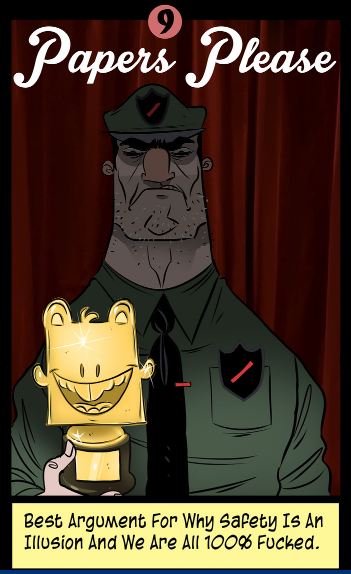
This weekend some friends were talking about how theoretical discussions about their hobby had stopped being about the hobby, and were seminars on safety. People seemed confused, as how could you spend that much time discussing safety? Don’t let people get hurt, what else is there?
The thing is that being safe is not a simple technocratic concept of preventing danger. Ozy wrote eloquently about the difference between risk management, and that of fear. Those of us who want to drive take classes teaching us how to drive, and follow various regulations of the road designed to keep us alive. It is, frankly, boring all around. We know these machines can deliver death, but we deal with them rationally as a matter of cost-benefit analysis.
This is a far cry from the tactics of MADD, who can give whole classes on the culture of drunk driving, and have become consumed with the fear of how all intoxicants present a threat to our life.
Most MADD sponsors have of course undergone horrible tragedy in their life. I do not blame them for trying to find meaning in that and prevent others from suffering the loss they did. But it’s undeniable that there’s a difference here between how most people see cars, and how a culture of fear does.
“ The ethical struggle to sustain the meaninglessness of the catastrophe is the topic of Atom Egoyan’s masterpiece The Sweet Hereafter, arguably THE film about the impact of a trauma on a community. Mitchell Stephens, a lawyer, arrives in the wintry hamlet of San Dent to sign up the parents of children who died when their school bus plunged into an ice-covered lake. His motto is “there are no accidents”: there are no gaps in the causal link of responsibility, there always HAS to be someone who is guilty. (As we soon learn, he is not doing this on account of his professional avarice. Stephens’ obsession with the complete causal link is rather his desperate strategy to cope with the private trauma, which is sorting out responsibility for his own daughter Zoe, a junkie who despises him, although she repeatedly calls him demanding money: he insists that everything must have a cause in order to counteract the inexplicable gap which separates him from Zoe “ -Zizek
I wrote earlier how fear is a much more powerful ideological motivator than hate. Fear can drive us to as much extremism and inhumanity, but it’s considerably harder to question than blind hatred. Concern for safety is the polite dress of fear.
In our attempt to find meaning in catastrophe, we next conclude that to prevent catastrophe is merely a matter of obeying the rules in the ideological worldview we have created. Don’t say the wrong things, don’t hang out with the wrong people, don’t do anything that feels uncomfortable, and disaster can be kept from your doorstep like the spirit of death.
This is not true. The real spirit of death can strike any of us, no matter how much we prepare. Reality is cruel and coldly random like that. But once you’ve started down that road, the logic of ideology begins a spiral of “that last disaster was because we were insufficiently safe. We must become even safer!” There become whole new venues of our lifestyle we can use to explore safety. Ideology after all is a totalizing function, that seeks to explain everything about life, and so nothing you do - what you read, what you eat, how you interact with your parents or who you choose as clients - are outside the analysis of “how can we be safe?”
It also becomes a very didactic discourse. Ideology has no concern with objectively minimizing your risk, but with the feel of safety, so disagreement over different methods is useless - it only makes you feel less safe after all. Instead these conversations default to the Clickhole parody: Let’s Have An Open Dialogue About Sexuality That Completely Validates My Point Of View . It doesn’t get anything done, and you’re just as at risk as before, but it sure spends a lot of time doing so.
This is why “safety” from terrorism, to sex ed, to Americanitis , has always been such a byword for “there is ideological mystification going on.” If you’ve ever felt in a culture of “yet more discussions about safety” there was something bizarre and politely sinister going on, this is why.
No comments:
Post a Comment